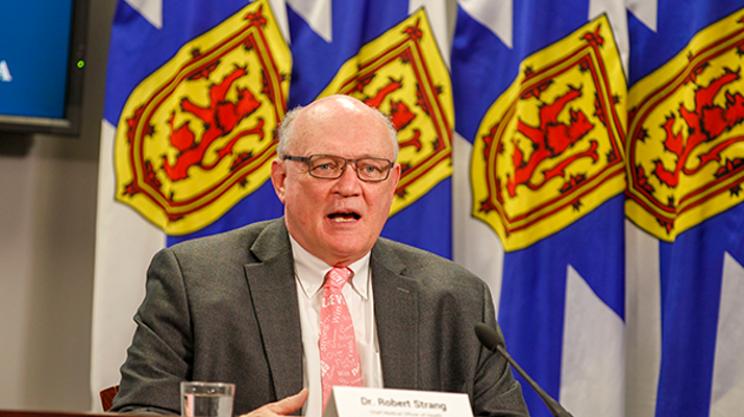At the beginning of Halifax’s third wave of COVID-19, cases rose and so did testing numbers. Three of the biggest rapid testing sites—the Halifax Convention Centre, Alderney Gate Library and Halifax Central Library—were swabbing about 1,800 noses each, per day.
Lisa Barrett, the infectious disease specialist who heads up several rapid testing sites across HRM, says that number has now gone down to about 600 people per site per day—a third of what it was at the peak.
“I do wonder if part of our numbers coming down, is that we may be missing some people who are early in infection who don't have symptoms yet,” she tells The Coast in a phone call over the weekend. “Because testing numbers are starting to fall off. So that does concern me.”
In late April, when Nova Scotia saw double-digit cases for the first time in a long time, people flocked to testing sites in droves.“The thing I think that folks are missing is that what we’re recommending at the moment, is not just that people get tested when the numbers are high, but also get tested weekly.”
tweet this
“Lots of people were coming out for asymptomatic testing or no-symptoms testing, that peak of that wave,” doctor Barrett says. “We were finding a lot of folks who didn't even have symptoms yet, which is great.”
But despite rising case numbers, those people aren’t coming back for the weekly testing recommended by Barrett, top doc Robert Strang and many other public health officials.
“I'm excited and really pleased, people are still getting tested. And still, every day, we see new people coming in who've never had a test before, which is pretty amazing,” says Barrett. “But the thing I think that folks are missing is that what we're recommending at the moment, is not just that people get tested when the numbers are high, but also get tested weekly.”
While some people are relying on exposure notices to decide whether they should get a test, Barrett says at this point people should “assume that you're in an exposure site if you live in certain areas in this province—or almost anywhere in the province at the moment, because there's a lot of community spread.”
For people who live alone and “never, ever, ever leave your house,” Barrett says maybe monthly testing is OK, but anyone else should consider weekly testing.
And rapid testing has been effective in Nova Scotia, too. Barrett says this wave, 12 or 13 percent of our total cases have been detected at rapid testing sites. While that’s only about 300 out of tens of thousands of noses swabbed, Barrett says it had an impact in limiting community spread. “People had a lot of contacts,” said Lisa. “That's seven, eight, nine infections each that you would have missed.”
While the booking of PCR tests at primary assessment centres hit a capacity limit last month, Barrett says at rapid test sites, the more the merrier.



